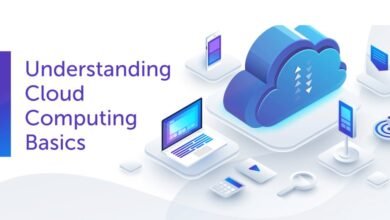How Quantum Computing Could Impact U.S. Industries
Discover how quantum computing will revolutionize U.S. industries like healthcare, finance, and cybersecurity with unprecedented speed.

Quantum computing is poised to revolutionize multiple sectors across the U.S. economy, offering unprecedented computational power to solve problems that are currently intractable for classical computers. Unlike traditional binary systems, quantum computers leverage qubits, which can exist in multiple states simultaneously, enabling them to process vast amounts of data at incredible speeds. This breakthrough technology has the potential to transform industries such as healthcare, finance, cybersecurity, logistics, and energy by optimizing processes, accelerating research, and enhancing decision-making.
The rapid advancement of quantum computing is set to redefine the technological and industrial landscape in the United States. With the ability to perform complex calculations in seconds tasks that would take classical computers thousands of years quantum computing promises to unlock new frontiers in science, business, and national security. Industries ranging from pharmaceuticals to defense are already exploring quantum applications to gain a competitive edge.
The Transformative Potential of Quantum Computing in U.S. Industries
Healthcare
The healthcare sector stands to benefit immensely from quantum computing, particularly in drug discovery and personalized medicine. Traditional drug development is a time-consuming and costly process, often taking over a decade and billions of dollars to bring a single drug to market. Quantum computers can simulate molecular interactions at an atomic level, drastically reducing the time needed to identify promising compounds.
Pharmaceuticals
Beyond drug discovery, quantum computing could enhance medical imaging and diagnostics. Machine learning models powered by quantum processors could analyze MRI and CT scans with greater precision, leading to earlier and more accurate disease detection. As the U.S. healthcare system continues to face challenges .
Optimizing Processes
Quantum computers analyze complex data and variables exponentially faster than classical systems, accelerating decision making. Quantum powered algorithms improve pattern recognition, predictive analytics, and automation for smarter process management. Optimizes routes,inventory management and demand forecasting.
Finance
The financial industry is another sector where quantum computing could have a profound impact. Risk assessment, fraud detection, and portfolio optimization are areas that require immense computational power. Quantum algorithms can process complex financial models in real-time, enabling banks and investment firms to make data-driven decisions faster than ever before.
Banking
Another critical application is in cryptography. While quantum computers threaten current encryption methods, they also offer solutions through quantum-resistant cryptography. Financial institutions must prepare for this shift to protect sensitive data from quantum hacking. The U.S. financial sector is already investing in quantum research to stay ahead of both opportunities and risks, ensuring stability in an increasingly digital economy.
National Defense
In defense, quantum computing can enhance strategic decision-making through advanced simulations and AI-driven analysis. Military applications include optimizing logistics, improving missile defense systems, and decrypting enemy communications. Given the global race for quantum supremacy, the U.S. must maintain its leadership in this field to ensure technological and military superiority.
Cybersecurity
The rise of quantum computing presents both opportunities and threats for cybersecurity. On one hand, quantum computers can break widely used encryption standards like RSA and ECC, jeopardizing national security and corporate data. On the other hand, quantum key distribution (QKD) offers a theoretically unchackable communication method, ensuring secure data transmission.
Logistics
Quantum computing can optimize supply chains by solving complex routing and scheduling problems. Companies like Amazon and Walmart could use quantum algorithms to minimize delivery times, reduce fuel consumption, and manage inventory more efficiently. This would lead to cost savings and improved sustainability a critical factor as businesses face increasing pressure to reduce their carbon footprint.
Supply Chain Management
Additionally, quantum-enhanced AI could predict disruptions in the supply chain caused by geopolitical events, natural disasters, or demand fluctuations. By enabling real-time adjustments, quantum computing could make supply chains more resilient, ensuring smoother operations across industries. As the U.S. continues to invest in quantum research and development, businesses must prepare for the disruptive yet transformative effects.
Energy
The energy sector could see groundbreaking advancements thanks to quantum computing. One major application is in optimizing power grids, where quantum algorithms can balance supply and demand more efficiently, integrating renewable energy sources like wind and solar. This could accelerate the transition to a green economy while reducing energy costs for consumers.
Climate Science
Quantum simulations could also revolutionize material science, leading to the discovery of better superconductors, more efficient batteries, and advanced solar panels. By modeling chemical reactions at the quantum level, researchers can develop cleaner energy solutions faster, helping the U.S. meet its climate goals.
Accelerating Research
Quantum computing is dramatically accelerating research across multiple fields by solving complex problems that were previously impossible or too time-consuming for classical computers. In pharmaceuticals, quantum simulations can model molecular interactions at an atomic level, slashing years off drug discovery timelines for diseases like cancer and Alzheimer’s. Material science benefits from quantum-powered modeling.
Challenges
Despite its potential, quantum computing faces significant hurdles. Current quantum systems are highly sensitive to environmental interference, requiring extreme cooling to maintain stability. Scaling these systems for commercial use remains a challenge, and the cost of development is prohibitive for many organizations. Additionally, there is a shortage of skilled quantum engineers, necessitating greater investment in education.
Considerations
Ethical and regulatory concerns also arise, particularly regarding data privacy and the potential for quantum-powered surveillance. Policymakers must establish frameworks to ensure responsible development and deployment of quantum technologies. Additionally, quantum algorithms can optimize clinical trials by analyzing vast datasets to identify ideal patient groups, improving efficacy and reducing costs.
Read More: The Sleep-Mental Health Equation: Insights into a Restorative Relationship
Conclusion
Quantum computing holds the promise of transforming U.S. industries in ways that were once unimaginable. From accelerating drug discovery to optimizing financial markets and securing national defense, its applications are vast and far-reaching. However, realizing this potential will require overcoming technical, financial, and ethical challenges. As the U.S. continues to invest in quantum research, collaboration between government, academia, and the private sector will be essential to maintain global leadership in this revolutionary field.
The journey toward quantum supremacy is just beginning, and its impact on the economy and society will unfold over the coming decades. Businesses and policymakers must act now to harness the benefits of quantum computing while mitigating its risks. By doing so, the U.S. can position itself at the forefront of the next technological revolution, driving innovation and economic growth for years to come. This article explores how quantum computing could reshape key U.S. industries, the benefits it offers.
FAQs
What is quantum computing?
Quantum computing uses qubits instead of classical bits, allowing it to process complex calculations exponentially faster than traditional computers.
Which industries will benefit most from quantum computing?
Healthcare, finance, cybersecurity, logistics, and energy are among the top sectors that will see significant advancements.
Is quantum computing a threat to cybersecurity?
Yes, quantum computers can break current encryption, but they also enable ultra-secure quantum cryptography methods. The race is on to deploy post-quantum encryption before hackers gain access to quantum capabilities.
How soon will quantum computing be widely available?
While still in early stages, commercial quantum computing is expected to become viable within the next 10-15 years. Widespread adoption depends on overcoming technical barriers like qubit stability and error correction.
What challenges does quantum computing face?
Key challenges include technical instability, high costs, and a shortage of skilled professionals in the field. Additionally, scaling up qubit systems and addressing cybersecurity risks remain significant hurdles.











